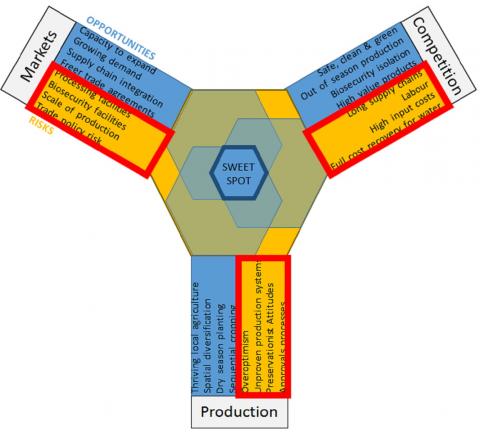
Success in supporting investors is as much about identifying and weeding out the high-risk options as quickly as possible, as it is about clearing obstacles and enabling promising opportunities to progress.
Some investments have risks that the proponents do not fully appreciate. One of the most useful roles government can play is in speeding up the evaluation process to identify critical investment risks, primarily through streamlining approvals processes, but also, where possible, in helping investors to mitigate their own private risks.
The costs that arise when an investment fails can be considered in three main categories: the direct private financial losses incurred by an investor; the costs to the public from the negative economic, social, and environmental impacts of a failed business; and the opportunity costs to both investors and government in the wasted resources and effort that could have been more usefully applied to other opportunities.
Governments typically take on the responsibility of protecting the public from the negative impacts of private investments through the policies and regulations that businesses are required to follow. While such regulations perform an essential function in protecting the public interest, approvals processes can be very costly and protracted for investors in Northern Australia agriculture, often involving inefficiencies from weak co-ordination across multiple regulatory agencies. What is more important to most investors than a favourable final outcome, is greater clarity and efficiency in how approvals are processed. A streamlined approvals process that provides a definitive decision in a reasonable time frame provides investors with certainty, allowing them to quickly progress to the next stages when approved or, when they are denied, allowing both government and investors to redirect their time and effort elsewhere.
An entrepreneurial spirit is required to invest in northern Australia, but enthusiasm and over-optimism can at times exceed capacity and realistic planning. Private businesses costs and risks are typically considered the responsibility of the investor. Nonetheless, where government has the expertise, it could still provide a valuable service by assisting investors to more rigorously identify and evaluate the risks in their proposed business and insure that key assumptions are realistic. A recent example of government intervention in this area has been a series of comprehensive assessments of river catchments in northern Australian. These assessments aimed to reduce uncertainty and risk for investors by providing quantitative and mapped information on land and water resources together with related information needed to make investment decisions, including indicative development costs and farm productivity.




